




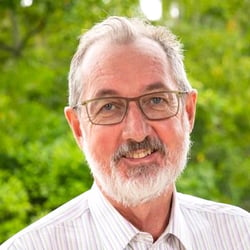
John Allan will feature on a discussion panel focusing on the policy implementation challenges and priorities for Queensland.
About John
John is the Executive Director of Mental Health Alcohol and ither Drugs Branch in Queensland Health. He has previously been Chief Psychiatrist in both Queensland and New South Wales. He spent twenty years working in North Queensland where he developed a wide range of new mental health services, following his psychiatry training in Adelaide. His clinical interests include the mental health and wellbeing of Aboriginal and Torres Strait Islander people and comprehensive care for those with serious mental illness. His current research and policy interests focus on mental health system reform, clinical service improvement, reduction in restrictive practices, human rights, recovery-oriented practice and smoking reduction strategies. He is the immediate past President of the Royal Australian and New Zealand College of Psychiatrists. He is a foundation member and current co-chair of Equally Well Australia. He co-coordinates the World Psychiatric Association Alternatives to Coercion Working Group.

Abbe Anderson will be presenting with Aroha Metcalf on New Zealand's approach to community-based mental health service delivery, key differences to Australia's system, and the barriers and opportunities to strengthening Australia's community mental health system.
About Abbe
Abbe brings diverse experience across hospital and primary care, including two decades leading complex system reforms. In her previous role, Abbe worked with the Institute for Urban Indigenous Health in Brisbane, supporting the development of community-controlled commissioning frameworks for Aboriginal and Torres Strait Islander peoples. She is also a director on the boards of Beyond Blue, Australia's most recognised mental health charity. Abbe brings considerable experience in a diverse range of hospital and primary care systems, including two decades leading complex system reforms. Whilst CEO of the Brisbane North Primary Health Network (PHN), Abbe successfully led the organisation through two significant government reforms to transition from a Division of General Practice to a Medicare Local and then to a PHN that commissions primary care services for a population of over one million people. Originally from Colorado in the USA, Abbe is a dual citizen of New Zealand and Australia and has undertaken executive study at Otago University and worked alongside rural hospitals in Te Waipounamu earlier in her career. She is passionate about equity and self-determination, is driven by a deep curiosity and excited by ingenuity.
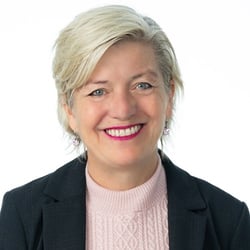
Jennifer Black will feature on two panels at the Leading Reform Summit. The first panel will focus on the policy implementation challenges and priorities for Queensland. The second panel will discuss how a community-led and community-based system would make a difference to people's lives.
Jennifer is the CEO of the Queensland Alliance for Mental Health which is the peak body for the Community Mental Health and Wellbeing Sector and people with experiences of psychosocial disability in Queensland. She has previously held some key roles in Victoria, including Deputy Mental Health Complaints Commissioner for Victoria and the Executive Director of Mental Health and Drugs and Alcohol Services for Barwon Health. Initially trained as an Occupational Therapist, Jennifer has over 30 years’ experience in government, public, private and not for profit mental health sectors. Jennifer is particularly interested in how organisation culture influences the care that is delivered and has spent much of her career challenging the status quo to enable better outcomes for people to live their best lives within their communities.
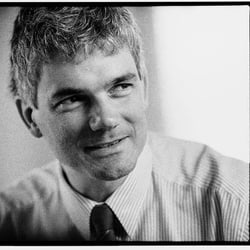
The Federal Government's new Measuring What Matters framework provides important information in addition to GDP to help assess our success as a nation. Unfortunately, it leaves GDP as currently defined unchanged. This presentation will outline how GDP can be improved by better capturing mental and not just monetised, material wealth. The implications of how this improvement could be achieved with the support of mental health services leaders is identified.
John Buchanan is currently Co-Director of the Mental Wealth Initiative and a Professor in the Business Information Systems Discipline at the University of Sydney Business School. His key domain of expertise is labour market structuring and its implications for skills and education. This research involves, inter alia, using data science in conjunction with qualitative methods to generate new scholarly and policy relevant knowledge. His current research interests concern (i) understanding how mental and not just material aspect of life determine national prosperity and (ii) new directions in occupational reconstruction, especially in the health and social services.

Candice Butler will feature on a panel discussing Truth, Treaty and healing in practice - What does collective action look like?
Candice Butler is a proud Aboriginal woman with strong family connections to Yarrabah in Far North Queensland. She is passionate about ensuring Aboriginal and Torres Strait Islander peoples have true self-determination and authority over decisions that are made about their lives particularly in the area of Child Protection. As the inaugural Director of the Centre of Excellence at the Queensland Aboriginal and Torres Strait Islander Child Protection Peak Ltd (QATSICPP), Candice has provided significant leadership in the design, delivery, management, and evaluation of projects to improve child and family wellbeing across Queensland. This has included co-author of research and leading of the evaluation and action research agenda. At the heart of Candice’s work is ensuring that the voice and choice of Aboriginal and Torres Strait Islander people is heard and respected in child protection reform.
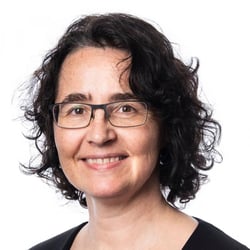
Dr Nicola Brackertz will be discussing the interplay between housing and mental health pathways, and how safe, secure, appropriate and affordable housing is critical to for recovery from mental ill-health. Nicola will also feature on a panel addressing Queensland's current socio-economic circumstances.
About Nicola
Nicola is a research specialist with over 20 years’ experience in a wide range of areas related to public policy, social justice, housing and disadvantage. Her research interests include homelessness, housing first, mental health, social housing, and Aboriginal housing. Nicola is an experienced evaluator of programs and interventions to address homelessness. Nicola is a research specialist with over 20 years’ experience in a wide range of areas related to public policy, social justice, housing and disadvantage. Her research interests include homelessness, housing first, mental health, social housing, and Aboriginal housing. Nicola is an experienced evaluator of programs and interventions to address homelessness. Nicola was the lead researcher on ‘Trajectories’ (with Mind Australia), which investigated the links between housing and mental health pathways and the lead researcher (with the National Mental Health Commission) on a project on ‘Housing, homelessness and mental health: towards systems change’. Nicola has expertise in the design, implementation and analysis of research in both academic and applied contexts. She has worked with a variety of stakeholders from the not-for-profit, government and community services sectors.
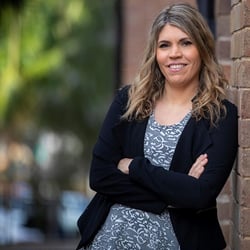
Shannan Dodson will be speaking about Leading Healing our Way: The Queensland Aboriginal and Torres Strait Islander Healing Strategy 2020-2040. The strategy brings together wisdom, experiences, hopes and solutions for healing of Aboriginal and Torres Strait Islander peoples. Backed by research and knowledge around Aboriginal and Torres Strait Islander wellbeing and trauma, the strategy has healing evidence provided through yarning with over 400 Aboriginal and Torres Strait Islander Queenslanders from 80 different cultural groups, in over 50 locations.
Shannan Dodson is a Yawuru woman whose family is from Broome in Western Australia. Shannan is the CEO of The Healing Foundation; a national Aboriginal and Torres Strait Islander organisation that provides a platform to amplify the voices and lived experience of Stolen Generations survivors and their families. She has worked in Aboriginal and Torres Strait Islander affairs for almost 20 years.
Shannan was previously the Deputy CEO of NASCA and Co-Chair for the National NAIDOC Committee. She has also worked on the constitutional recognition for Indigenous peoples and Australian Marriage Equality campaigns. Shannan is passionate about First Nations' rights and understanding mental health issues, particularly intergenerational trauma for Aboriginal and Torres Strait Islander communities.

This presentation reviews the emerging body of literature on best-practice in suicide prevention and postvention programs among Aboriginal and Torres Strait Islander people. Suicide postvention programs and services are most likely to facilitate healing among Aboriginal and Torres Strait Islander families when they are community-controlled, centred, and led, inclusive, self-determined, trauma-informed, and an expression of cultural values and beliefs. These factors inform the Thirrili model of postvention care, connection, and practice which adopts a holistic approach to postvention support where Indigenous ways of knowing, being, and doing and community-based solutions are the priority. An Indigenous model of postvention can work to strengthen community capacity and self-determination, provide a pathway to improved SEWB, and achieve significant and sustained reduction in suicide among Aboriginal and Torres Strait Islander people towards zero.
Chenoa Dowling is the Regional Coordinator for Queensland & Northern Territory - Thirrili Indigenous Suicide Postvention. Chenoa has been with Thirrili since 2017, prior to this held roles with Headspace, Department of Child Protection, Family & Child Connect and has provided counselling for individuals impacted by the Royal Commission into Institutional Responses to Child Sexual Abuse. Chenoa is passionate about working with families, young people and First Nation Communities. Her recent work focuses on community-led responses, enhancing client and community self-determination - particularly in the context of responding to suicides or other traumatic events.
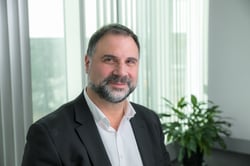
Professor David Forbes will feature on a panel discussion looking at how we can improve our responses to trauma. Professor Forbes will discuss the issue of psychological trauma and its impact on mental health, and intersections with substance use and suicidality. He will outline limitations in current service system approaches and highlight the potential for an integrated, multi-level and coordinated person-centered approach to supporting trauma survivors and their families, carers and kin. In this context he will describe the early phases of the establishment of the Statewide Trauma Service in Victoria contracted in response to the recommendations of the Royal Commission into mental health in Victoria and its potential challenges.
About David
Professor David Forbes is the Director of Phoenix Australia Centre for Posttraumatic Mental Health in the Department of Psychiatry, the University of Melbourne. Professor Forbes is a clinical psychologist and an international expert in the assessment and treatment of mental health problems in trauma survivors, with a speciality in military, veteran, emergency, and disaster mental health. Having published over 220 peer-reviewed articles and book chapters, David sits on the editorial boards of leading international journals. He Chairs the International Society for Traumatic Stress Studies (ISTSS) prevention and treatment of Posttraumatic Stress Disorder (PTSD) clinical guidelines committee and led the development of the inaugural Australian PTSD Guidelines approved by the National Health and Medical Research Council in 2007 and revised in 2013 and 2020. He is Co-Chair of the Executive Council for the Victorian Statewide Trauma Service, commissioned as an outcome of the Royal Commission into mental health in Victoria.

Jordan Frith will provide a lived experience welcome to open the Leading Reform Summit, as well as closing remarks on the final day of the Summit.
Jordan is a youth consumer representative who specialises in mental health advocacy and transitions of care. Jordan advocates for improving system navigation, reducing service duplication, empowering consumers to have more input into their healthcare, and respecting the rights of marginalised consumers. She is the Deputy Consumer Co-Chair of the National Mental Health Consumer Carer Forum and works across systems and levels of government to ensure that all consumers have a voice in decision making. Jordan is currently studying a Bachelor of Public Health and works as a psychosocial disability peer worker.

Jorgen Gullestrup will feature on a discussion panel focusing on the policy implementation challenges and priorities for Queensland.
Jorgen is the CEO of the Mental Health Lived Experience Peak Queensland. He is also a member of the Queensland Mental Health Health and Drugs Advisory Council. He has been involved in the Suicide Prevention and Mental Health sector for more than 15 years. He was the co-founder of the peer-led MATES in Construction suicide prevention program.

Dr Lucy Grummitt will feature on a panel discussion looking at how we can improve our responses to trauma. How prevalent is trauma across the Australian community? How can we improve prevention and early interview response to trauma?
About Lucy
Dr Lucy Grummit’s research focuses on the prevention of mental health and substance use problems among adolescents, with a particular focus on populations that suffer disproportionate rates of mental illness, such as those exposed to childhood adversity and trauma, and gender- and sexuality-diverse (LGBTQA+) young people. She is passionate about school-based prevention, and currently leads the development and national randomised controlled trial of a universal trauma-aware and gender-inclusive mental health prevention program for Australian students. She is committed to youth involvement in the research process and coordinates a Youth Advisory Board, engaging a diverse group of 10 Australians aged 16-25 to ensure youth perspectives are integrated into research.
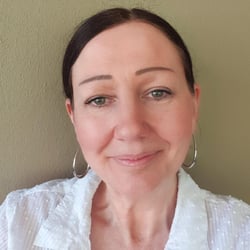
Cindy Heddle will provide a carer welcome to open the Leading Reform Summit, as well as closing remarks on the final day of the Summit.
Cindy is the Queensland Carer Representative for the National Mental Health Consumer and Carer Forum (NMHCCF)
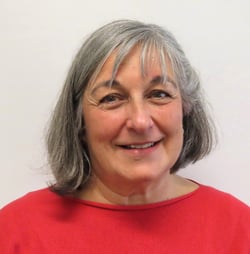
Dr Hoehn will feature on a panel looking at how we can improve our responses to trauma – starting at the beginning. The beginning is always the best place to start and intervening early to prevent the mental health consequences of trauma has the biggest potential impact when implemented in the First 2000 Days of life. An integrated approach that targets the many ports of entry that families engage with in this life transition is crucial to improving our responses and ultimately the outcomes for individuals and families.
Dr Elisabeth Hoehn is the Medical Director and Consultant Child Psychiatrist for Queensland Centre for Perinatal and Infant Mental Health. Elisabeth has more than 30 years’ experience in child and youth mental health, including clinical service delivery, service management and development, quality enhancement and outcome evaluation. She is passionate about perinatal and infant mental health service development, family-centred and community-based care, collaborative practice, training, and advocacy. Elisabeth has been instrumental in the conceptualisation, development, and implementation of the mental health continuum of care for parents in the perinatal period, infants, young children, and their carers in Queensland.
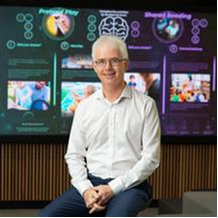
Michael Hogan will discuss shifting mindsets and weaving systems: the power of integrative, developmental and collaborative approaches.
About Michael
Michael Hogan is the Convenor the ARACY-auspiced Thriving Queensland Kids Partnership. He is also an Industry Fellow with the University of Queensland’s Queensland Brain Institute, and an Adjunct Professor with QUT’s Centre for Justice. Michael was an inaugural Paul Ramsay Foundation Fellow, and is an Executive Fellow of the Australian and New Zealand School of Government. Michael Hogan has over 37 years’ experience, in 25 years in executive roles, in public purpose work in the government and non-government sectors. That includes as a Director-General of two Queensland Government agencies, and five years as CEO of a community-based public interest advocacy organisation. Michael is also a member of the Centre for Policy Development’s Early Childhood Development Council, and is on the Board of Directors of the Torres Health Corporation, and the Council of the Qld Library Foundation.
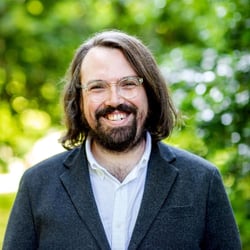
Greg Jennings will discuss how we can protect people's mental health during cost-of-living pressure.
Greg is the Chief Strategy Officer at Beyond Blue. Beyond Blue is an independent, not-for-profit mental health organisation that works with the community to improve mental health and make it easier for people to feel better earlier, get well and stay well. Greg is passionate about building capability to promote positive mental health, prevent ill-health, and better support those experiencing a mental health condition. Greg has extensive experience in mental health promotion, policy, and behavioural change. He has qualifications in Economics and Social Sciences from the University of Sydney; Policy and Applied Social Research from Macquarie University; Behavioural Science from the London School of Economics and Wellbeing Science from Melbourne University.
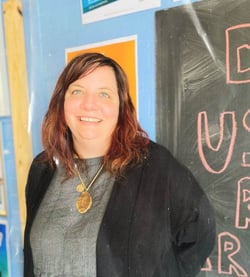
Emma will feature on two panels at the Leading Reform Summit. The first panel will focus on the policy implementation challenges and priorities for Queensland. The second discussion panel will focus on key harm reduction initiatives for Queensland.
As the current CEO of QuIVAA, Queensland’s peer-based drug user organisation, Emma brings her own experience of AOD providing advocacy and tailored services supporting the PWUD community. With a background in social work, she has a long history of delivering harm reduction and therapeutic AOD services across Queensland. Her commitment to the health and human rights of PWUD has seen her inclusion on a wide range of boards and advisory committees where she actively campaigns around the many issues that the community she represents face in achieving equitable participation. Emma is a current member of the Queensland Mental Health and Drug Advisory Council.

Erin will be discussing the evidence on unit-based alcohol pricing. Minimum unit pricing of alcohol has been successfully introduced in 13 other countries, helping to reduce drinking and related health and social harms. Erin will also feature on a panel discussing key harm reduction initiatives for Queensland.
Dr. Erin Lalor AM was appointed Chief Executive Officer of the Alcohol and Drug Foundation in 2017. She is a recognised leader in the health policy and not-for-profit sectors with over 20 years of experience as a clinician, researcher, advocate and leader. She is currently Deputy Chair of the Australian Institute of Health and Welfare and a member of the Australian National Advisory Council on Alcohol and Drugs. Previously she was CEO of the National Stroke Foundation and a Director of the World Stroke Organisation and VincentCare.
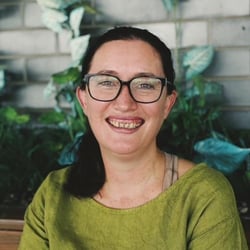
Rebecca Lang will feature on a panel discussing key harm reduction initiatives for Queensland.
Rebecca is the CEO of the Queensland Network of Alcohol and other Drug Agencies (QNADA), the peak organisation for the non-government alcohol and other drug sector in Queensland, providing support to over 55 organisational members operating in over 100 locations across the state. Rebecca has been a member of the Australian National Advisory Council on Alcohol and other Drugs (ANACAD) since 2017. ANACAD is the principal expert advisory body to the Australian Government on issues relating to alcohol and other drugs. Rebecca is also the Deputy Chair of the Australian Alcohol and other Drugs Council.
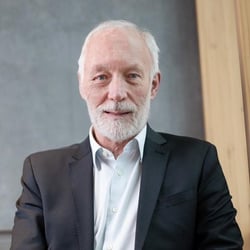
Professor Patrick McGorry will discuss the future of community psychiatry and and community mental health services. Professor McGorry will also feature on a panel discussing how a community-led and community-based system would make a difference to people's lives.
Professor Patrick McGorry is an Irish-born, Australian psychiatrist known world-wide for his development and scaling up of early intervention, youth mental health services, mental health innovation, advocacy and reform. He is executive director of Orygen, Professor of Youth Mental Health at the University of Melbourne, and founding editor of the journal “Early Intervention in Psychiatry”.
Professor McGorry has published over 980 publications, with 47,266 citations and a “h” index of 112 (Scopus). He has played key advocacy and advisory roles to government on health system reform in Australia and many parts of the world. He is President of the International Association for Youth Mental Health, past president of the Schizophrenia International Research Society, past president of the Society for Mental Health Research, and was Founding President and is now Treasurer of the IEPA: Early Intervention in Mental Health. He is also a Founding Board Member of Australians for Mental Health.
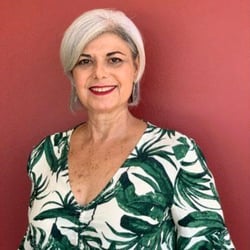
Nieves Murray will feature on a panel discussion looking at how we can improve our responses to trauma. How prevalent is trauma across the Australian community? How can we improve prevention and early interview response to trauma?
Nieves Murray is the Chief Executive of Suicide Prevention Australia, the national peak body for suicide prevention in Australia. With over 400 members representing over 140,000 people working in suicide prevention, Suicide Prevention Australia counts among its members the largest and some of the smallest organisations working in suicide prevention, practitioners, researchers, people with a lived experience of suicide and community leaders. Nieves holds a Psychology degree and has post graduate qualifications in Public Health and in Management. She completed Executive Education at Harvard University in 2008 and was named one of Australia’s 100 Most Influential Women by the Australian Financial Review in 2013. Nieves was a Lifeline Crisis Counsellor for over seven years. Outside of her work at Suicide Prevention Australia, Nieves is Chair of Beehive Industries, a social enterprise in central Sydney addressing loneliness and social isolation in the city. Since 2013 Nieves has been an appointed member of the University of Wollongong Governing Council.

Kiri will discuss the development and implementation of Kia Manawanui Aotearoa: Long-term pathway to mental wellbeing, which sets out a whole-of-government, population-based approach to mental wellbeing with a strong focus on promotion, prevention and getting in early. She will also discuss the associated Oranga Hinengaro System and Service Framework, which outlines the critical shifts needed for the mental health and addiction system to support the mental wellbeing approach.
Kiri Richards is the Associate Deputy Director-General for Mental Health and Addiction at New Zealand’s Manatū Hauora | Ministry of Health. She has led and been involved in recent work to transform New Zealand’s approach to mental wellbeing including through Wellbeing Budget investment and the development of Kia Manawanui Aotearoa: Long-term pathway to mental wellbeing. Kiri has held a range of technical advisory and leadership roles in consulting and the public sector with a focus on strategy and policy.
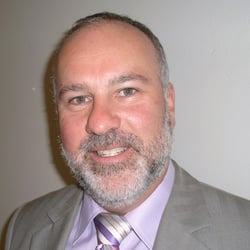
Sebastian will discuss some of the challenges of implementation and where things go wrong.
Sebastian was a public servant in both state and federal health departments before working at the Mental Health Council of Australia (now Mental Health Australia). During this period he began a PhD focusing on accountability for mental health, trying to determine whether what we are doing is really helping people or not. He holds two part-time academic positions, one at the Brain and Mind Centre at the University of Sydney and the other as Associate Professor at the Health Research Institute at the University of Canberra.
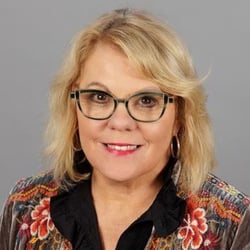
Cindy will discuss the Path to Truth, Healing and Treaty in Queensland. What does it mean? What is it for, and what does it look like?
Professor Cindy Shannon is a proud descendent of the Ngugi people from Moreton Bay. She is a distinguished academic and prominent leader who has dedicated her career to the field of Indigenous health and education.Current position as the Deputy Vice Chancellor (Indigenous, Diversity and Inclusion) and Head of the Logan campus at Griffith University. As a passionate advocate for Indigenous health and education, Professor Shannon has played a key role in the development and implementation of Indigenous health and education policy both in Queensland and nationally.Currently, Professor Shannon sits on several not-for-profit boards, including as a Member on the Gold Coast Health and Hospital Board, co-patron of the Queensland Aboriginal and Torres Strait Islander Foundation, and since 2017 has Chaired the Queensland Ministerial Advisory Committee on Sexual Health. In December 2022, she was appointed Chair of the Queensland Mental Health and Drug Advisory Council.In 2017, Professor Shannon was recognised as a Queensland Great for her advocacy of Indigenous health and her contribution to developing and implementing Indigenous health policy. In 2020 she was made a Member of the Order of Australia (in general division) for contributions to Medical Education and Indigenous Health. Professor Shannon received the AMA Queensland Excellence in Health Care medal in 2022.

Dr Adam Skinner will discuss research led by the University of Sydney that has revealed causal effects of unemployment and underemployment on suicide rates in Australia, with an estimated 10 per cent of reported suicide over a 13-year period resulting from labour underutilisation.
About Adam
Dr Adam Skinner is a mathematical modeller and biostatistician with the Brain and Mind Centre’s Systems Modelling, Simulation & Data Science group at The University of Sydney. He has expertise in the development and analysis of dynamic simulation models designed for use as decision support tools by health policy makers, and more than 10 years’ experience in the analysis of complex data sets using advanced statistical methods

Helen Taylor will be presenting with Margo Watson from the Queensland Police Service about the implementation of drug diversion in Queensland.
Helen Taylor is currently Director, Alcohol and Other Drugs Strategy in the Mental Health Alcohol and Other Drugs Strategy and Planning Branch, Department of Health. Helen has worked in alcohol and other drugs prevention and treatment for over 20 years, starting as an Occupational Therapist and working across government and non-government settings. She has worked in the Department in alcohol and other drugs treatment policy, planning, strategy and partnerships since 2015.

Professor Sir Graham Thornicroft will be giving a keynote presentation on the topic of ending discrimination and stigma in mental health.
Sir Graham Thornicroft is Professor of Community Psychiatry at the Centre for Global Mental Health and the Centre for Implementation Science, Institute of Psychiatry, Psychology and Neuroscience, King’s College London. He is also a Consultant Psychiatrist at the South London & Maudsley NHS Foundation Trust, working in a community mental health team in Lambeth. He is a Fellow of the Academy of Medical Sciences, is a National Institute of Health Research Senior Investigator Emeritus, and an Honorary Fellow of King’s College London and the Royal College of Psychiatrists. Graham took his undergraduate degree at Cambridge in Social and Political Sciences, studied Medicine at Guy’s Hospital, London and then trained in Psychiatry at the Maudsley and Johns Hopkins Hospitals. He gained an MSc in Epidemiology at the London School of Hygiene and Tropical Medicine, and a PhD at the University of London.
Graham has made significant contributions to the development of mental health policy in England, including chairing the External Reference Group for the National Service Framework for Mental Health, the national mental health plan for England for 1999-2009. He is also active in global mental health, for example, he chaired the World Health Organisation Guideline Development Group for the Mental Health Gap Action Programme (mhGAP) Intervention Guide (1st, 2nd and 3rd editions), a practical support for primary care staff to treat people with mental, neurological and substance use disorders in low- and middle-income countries, which has been used in over 100 countries worldwide. He chaired the External Reference Group for the WHO guidelines on the Management of Physical Health Conditions in adults with severe mental disorders. He has recently chaired the Guideline Development Group for the WHO guidelines on Mental Health at Work. He Co-Chaired the 2022 Lancet Commission on Ending Stigma and Discrimination in Mental Health. He is a Board Trustee of United for Global Mental Health, and a Board Member for Mental Health and Human Rights (F-GIP). His areas of research expertise include: reduction of stigma and discrimination, evaluation of mental health services, and global mental health. Graham has written over 670 peer-reviewed papers in PubMed, and has authored or edited over 32 books of which 7 are award winning. In recent years he has been named as among the most Highly Cited Researchers in the world by Clarivate. Graham has appeared in the media including BBC 1, BBC World Service, BBC Today radio programme, and The Economist. Graham received a Knighthood in the Queen’s Birthday Honours Awards in 2017.

Karyn Walsh will feature on a discussion panel addressing Queensland's current socio-economic circumstances. How should Queensland's mental health, AOD and suicide prevention services be preparing for and addressing the current social and economic climate?
About Karyn
Karyn Walsh has worked in the not-for-profit sector addressing homeless since 1978. During this time, Karyn has worked with many groups to create organisations and services to respond to the local circumstances of people experiencing homelessness and the economic and social systems which create homelessness in the first place. This has involved work across many population groups such as young people, young pregnant and parenting women, women and children escaping domestic violence, individuals, couples and families living on the streets, in cars, parks and motels. In recognising our current housing crisis across all communities in Australia Karyn is particularly interested in how we create a more equitable and inclusive housing system that is affordable, has security of tenure and when needed embedded services and healthcare tailored to the needs of tenants. Karyn has advocated for Housing First and Supportive Housing to form an integral part of our housing system. Karyn is Chair of the Australian Alliance to End Homelessness and CEO of Micah Projects which provides a range of services and is the backbone organisation for Brisbane Zero.
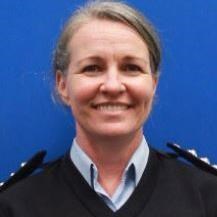
Margo Watson will be presenting with Helen Taylor from Queensland Health about the implementation of drug diversion in Queensland.
Margo joined the Queensland Police Service in 2000 where she has spent the majority of her service in the Tactical Crime Squads in the South Brisbane District from Inala to the Bayside Islands. Margo commenced her role at the Drug and Alcohol Coordination Unit in 2019 where she continues to build on the bridge between law enforcement and health for a collective response to ATOD issues.
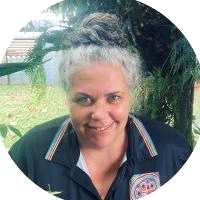
This presentation reviews the emerging body of literature on best-practice in suicide prevention and postvention programs among Aboriginal and Torres Strait Islander people. Suicide postvention programs and services are most likely to facilitate healing among Aboriginal and Torres Strait Islander families when they are community-controlled, centred, and led, inclusive, self-determined, trauma-informed, and an expression of cultural values and beliefs. These factors inform the Thirrili model of postvention care, connection, and practice which adopts a holistic approach to postvention support where Indigenous ways of knowing, being, and doing and community-based solutions are the priority. An Indigenous model of postvention can work to strengthen community capacity and self-determination, provide a pathway to improved SEWB, and achieve significant and sustained reduction in suicide among Aboriginal and Torres Strait Islander people towards zero.
Marnie Weule’s connections are to the Northern NSW area, her language group is Yaygirr, and she is a proud mum of four young men. Marnie has worked in Education, Family Wellbeing and Support, the Child Protection areas of Out of Home Care, the Family Participation Program, and in Social-Emotional Wellbeing and Mental Health. She has also been a Respected Person of the Murri Court and a Family Matters Queensland Leadership Group member. Marnie currently serves as the founding director of The Youth Embassy, Aboriginal Corporation for First Nations Youth, and is currently completing a Master of Youth Mental Health through the University of Melbourne.

Queensland Mental Health Commission
PO Box 13027 George Street Brisbane Queensland 4003
Phone 1300 855 945 | Fax 07 3405 9780
Copyright © 2019 Queensland Mental Health Commission. All rights reserved.